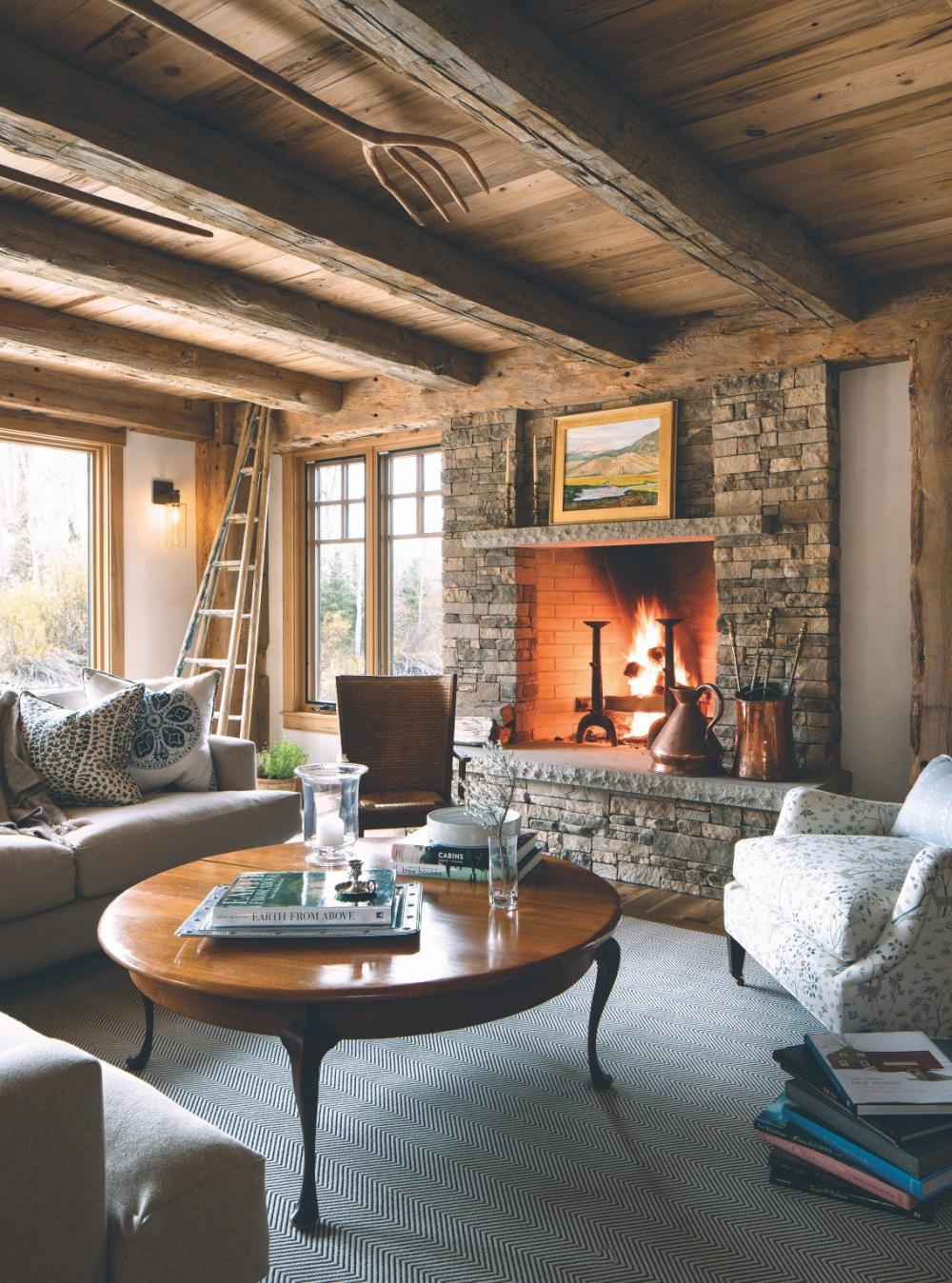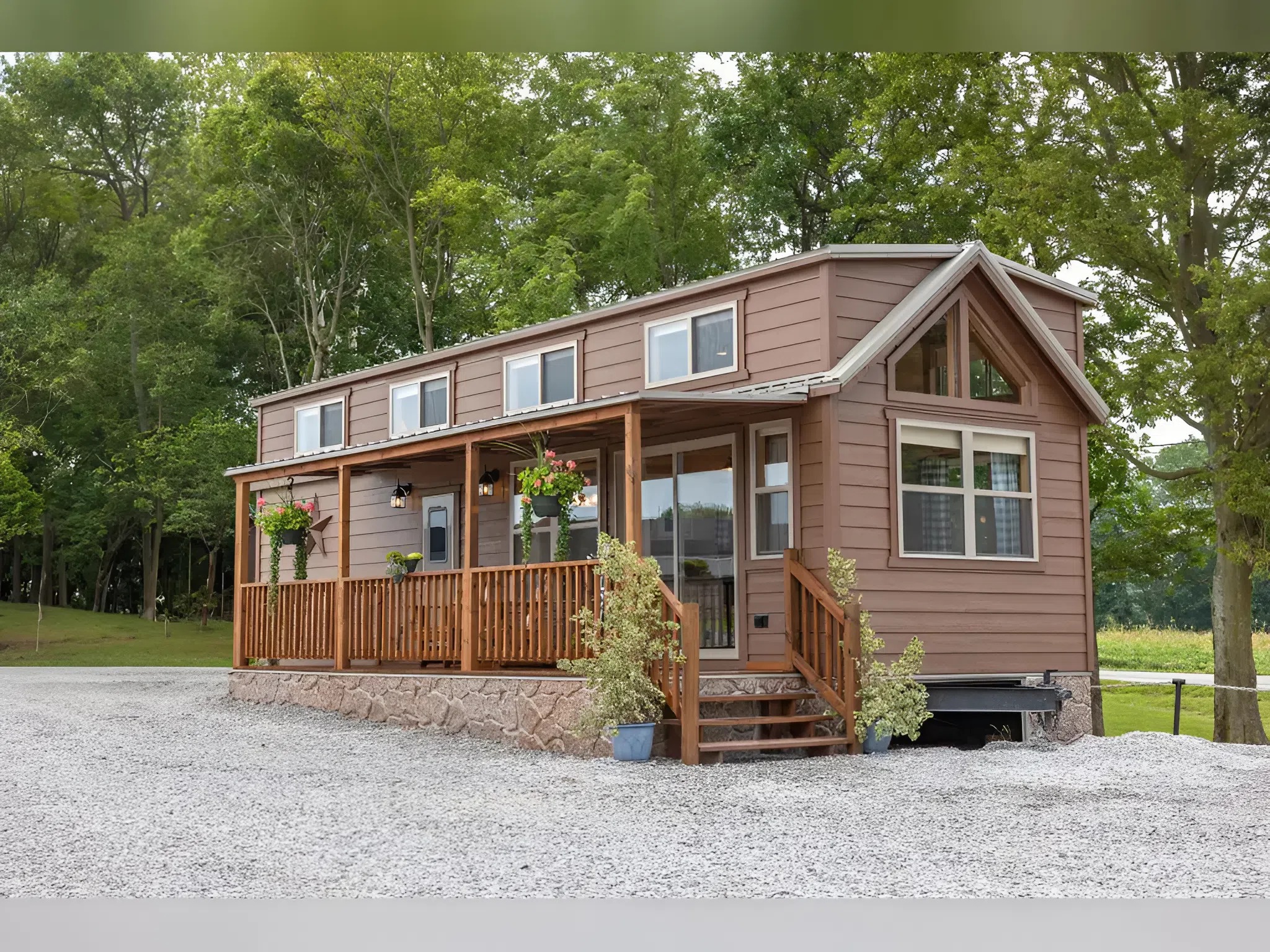
This rustic, 19th-Century barn renovation has so many great things. This home is filled with antiques from both America and England that give it its unique look and feel. Barns are what John Holland considers the heart of pastoral living. Holland’s fondest childhood memories are of his grandparents’ Massachusetts farm and summers on their family farm. When it came time for Holland to build a home for his family, he knew it would be a barn. It wouldn’t be any barn. It would instead be a 19th-century barn that was preserved from the Mohawk River Valley of upstate New York. The barn was designed to withstand the harsh Wyoming winters and was already built for heavy snow loads.
There are many details that make this barn-style home special, including a 1908 Edward S. Curtis photogravure Copper printing plate titled “Shooted in Hand Absaroke” which hangs in its main bedroom’s entryway. The kitchen has a rustic-meets–modern layout with a large eat–at black walnut island as well as minimalist, clean cabinetry that was made in the Wilkinson Montesano Builders’ cabinet factory. The stunning barn-style home features a reclaimed-oak floor that was salvaged from an upstate New York warehouse. Barbara Berry pendants provide soft, warm light and the rectangular center bay has 28-foot ceilings.
A sycamore table from Holland’s parents’ Nantucket house, which comfortably seats 10, is also found inside the home. This folk art totem, also known as a storypole, comes from a Washington coast tribe. Holland’s parents gave him an antique English chest and drawers as his first piece of furniture. The staircase leads to the second-floor bedrooms, where you will find the bedroom of the dormered owner with its natural wood ceiling. The main bathroom has a vintage feel thanks to basketweave tile.
John Holland is the founder and CEO of Old Growth LLC. Here are his tips and suggestions for renovating on this scale. First, decide if the structure will be used in its entirety for a new home or if you want to reclaim specific elements to add rustic accents to an existing home. The building’s structural integrity is important if you plan to use it as a whole. This involves checking for dry rot in logs and beams. This step can be done by an expert in log-and timber homes or a skilled builder.
Enjoy the past, America in the nineteenth century had the most amazing natural resource, a rich supply of virgin forests that were densely populated with huge trees. These structures were constructed by farmers and homesteaders with the available building materials. The old structure may not be square or perfectly level, so it is important to design interior spaces creatively. There will be some irregularities in the overall design. You will find odd angles so you will need to resist the urge to square it up.









You can find more information about this story at: Eliot Goss Architect


